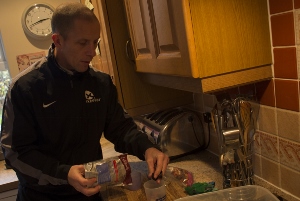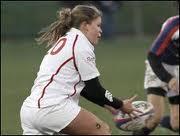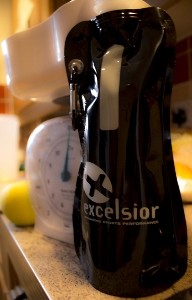Main Menu
Latest Blog Entry
User login
How to make your own sports drink
Lucozade and Red Bull are expensive
 but not necessarily better than water (see here for comparison). You can easily make your own sports drink which will help you save money and tailor it for your own needs.
but not necessarily better than water (see here for comparison). You can easily make your own sports drink which will help you save money and tailor it for your own needs.
The label on water states that it contains no carbohydrates, sugars, protein or fat for that matter.
Water acts as a buffer when body temperature rises if there is high specific heat (the specific heat of water equals 1 when 1 kilogram of water is heated 1°C between 15 and 16°C).
However the effects of water are to cool you down, rehydrate and help increase the mineral and vitamin absorption of a daily diet. Electrolytes are something that Lucozade does not contain enough of.
Some fluid facts
- Fluid losses of 1–2% of body weight or greater induce the need for fluid and electrolyte replacement.
- Losses as small as 1–2% of body weight stimulates thirst.
- The hypothalamus is the center of the brain where thirst regulation is dictated
- Fluid replacement guidelines have been established to minimize exertional dehydration.
- Dehydration, as defined by a 2% loss of euhydrated body weight, negatively impacts athletic performance.
- An athlete engaged in prolonged exercise can lose 5 L of fluid per day with a range of 4,600–5,750 mg sodium and much smaller amounts of potassium.
3 different types of sports drink
Isotonic – quickly replaces fluids lost by sweating and supplies a boost of carbohydrate. This drink is the choice for most athletes – middle and long distance running or team sports. Glucose is the body’s preferred source of energy therefore it may be appropriate to consume Isotonic drinks where the carbohydrate source is glucose in a concentration of 6% to 8% – e.g. High Five, SiS Go, Boots Isotonic, Lucozade Sport.
Hypotonic – quickly replaces fluids lost by sweating. Suitable for athletes who need fluid without the boost of carbohydrate e.g. jockeys and gymnasts.
Hypertonic – used to supplement daily carbohydrate intake normally after exercise to top up muscle glycogen stores. In ultra distance events, high levels of energy are required and Hypertonic drinks can be taken during exercise to meet the energy demands. If used during exercise Hypertonic drinks need to be used in conjunction with Isotonic drinks to replace fluids.
Want to make your own?
Isotonic – 200ml of orange squash (concentrated orange), 1 litre of water and a pinch of salt (1g). Mix all the ingredients together and keep chilled
Hypotonic – 100ml of orange squash (concentrated orange), 1 litre of water and a pinch of salt (1g). Mix all the ingredients together and keep chilled.
Hypertonic – 400ml of orange squash (concentrated orange), 1 litre of water and a pinch of salt (1g). Mix all the ingredients together and keep chilled.
Replacing sodium, after exercise is very important. Lucozade sport contains 23mg of sodium whereas the other types do not contain enough for replenishing what the body has lost through sweating and exercise.
Dehydration is one of the main causes of fatigue with only 2% body water loss potentially causing this. Therefore maintaining hydration during an event is crucial.
Although Lucozade contains enough sodium, water is still the best for hydration.
Matt Brookland
Client Testimonials
 Georgina Rozario: England Scrum Half
Georgina Rozario: England Scrum Half
I had the pleasure of having James as my first s&c coach when I was at University in Plymouth. I worked with him for 3 years and learnt everything I now know about training to the best of my ability. When I first saw James I was identified as a talented rugby player but had various injury and illness problems to contend with. By the end of my time with him I had become an athlete and later received my first international cap against the U.S.A.
More



Comments
[…] Fluid and fuel intake within 15mins post exercise. main meal within 2 hours. 1.5 litres of water for every kg lost or for every hour of exercise (depending on climatic conditions). […]
[…] education is necessary: breakfast cereals, how much sleep is needed, recovery drinks, recovery strategies for […]
[…] How to make your own sports drink […]